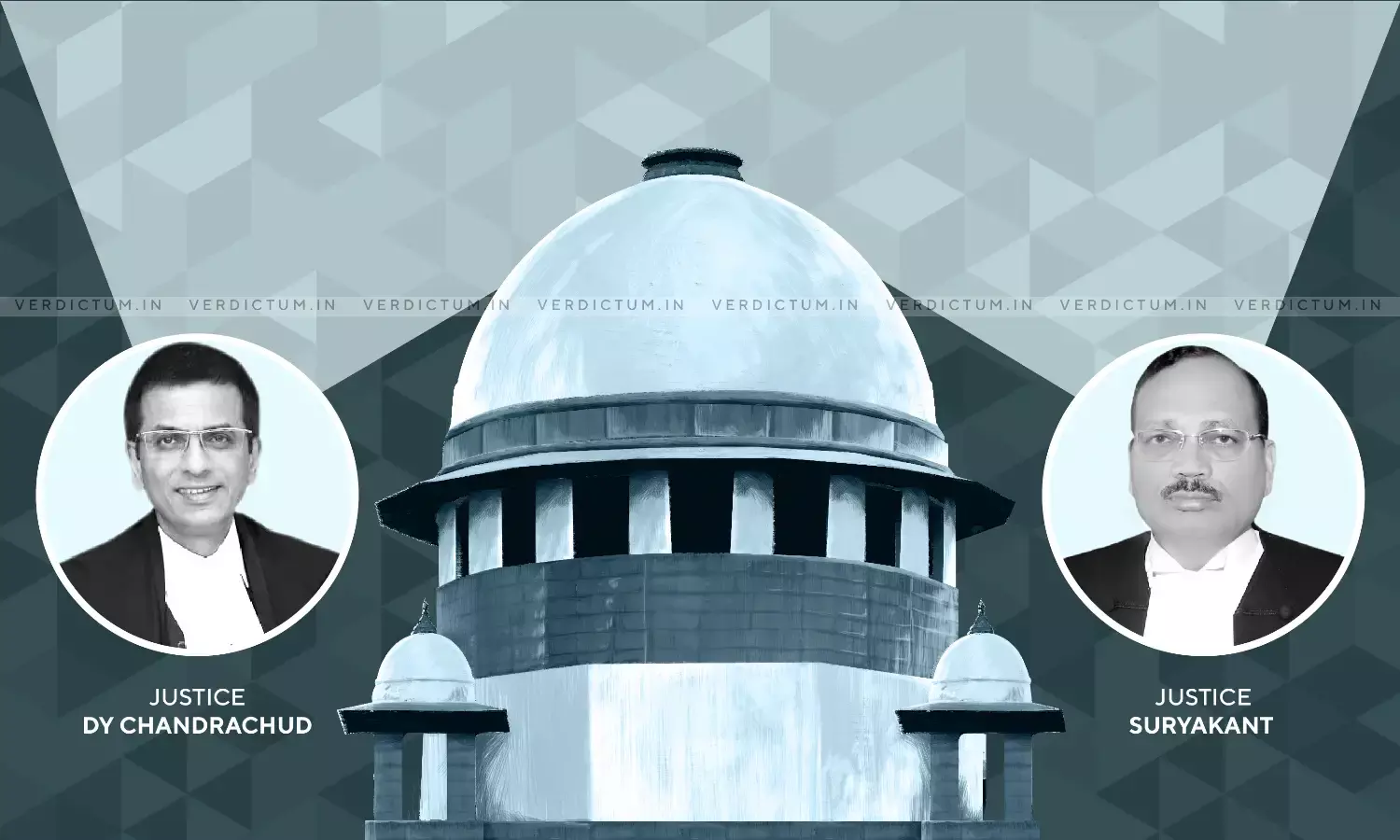Husband Is Posted At Border And You Went To Hotels With Another Man: SC To Woman
The Supreme Court on Friday refused the plea of a woman seeking cancellation of bail of a person accused by her of raping her saying it appears to be a case of "consensual relationship" in which she went to hotels with him and spent salary sent by her husband posted at the border with a central security force.
A Bench of Justice DY Chandrachud and Justice Surya Kant did not interfere with the Rajasthan High Court order granting bail to the accused.
You (woman) left your children back at home and went with him (accused) to hotels. You took a separate room on rent to live with the accused in a nearby town. This is how you were spending money of your husband, who is an ITBP personnel. That poor fellow posted at the borders did not even know what his wife was doing back home, Justice Kant said.
Justice Chandrachud said that "it appears from the charge sheet that it was a case of consensual relationship" and therefore it would not interfere with the High Court order of December 2, 2021.
Advocate Aditya Jain, appearing for the woman, submitted that the accused harassed the victim and committed rape with her several times, and even blackmailed her for money.
He relied upon certain bank transactions to prove the same and stated that the High Court did not note the submission of the complainant and merely granted bail to the accused saying that the charge sheet was filed in the case.
According to the petition filed by the woman seeking cancellation of the bail, the accused was booked under section 376 of IPC and provisions of Scheduled Castes and Scheduled Tribes (Prevention of Atrocities) Act, 1989.
The plea contended that the High Court has not assigned any reasons while enlarging the accused on bail while it is a settled law that there is a need to indicate in the order, reasons for prima facie concluding why bail was being granted, particularly, where an accused was charged with having committed a serious offence.
The High Court while granting bail has ignored the relevant materials indicating prima facie involvement of the accused respondent in the offences he is charged with. Such an order is legally infirm and vulnerable leading to miscarriage of justice to the Petitioner, the plea said.
It added that the victim in the FIR has alleged that the accused and his sister-in-law and her husband assisted in her rape, blackmailing, and extortion of money over a period of time.
The woman claimed that she lives with her two sons in a village in Rajasthan while her husband was posted with Indo Tibetan Border Police (ITBP) Force posted in Jammu.
The plea claimed that the sister-in-law of the accused, who lived in the same village, invited the complainant to her home wherein the accused was also present and offered her intoxicated tea and she lost consciousness.
As she regained consciousness, she realized that the accused had raped her and committed wrong acts which were also photographed and video graphed. The petitioner was also threatened by the accused that her videos will be released on the internet if she informs the act of rape to anyone, the plea said.
"We are not inclined to entertain the Special Leave Petition under Article 136 of the Constitution", the Bench said in its order.
With PTI inputs



